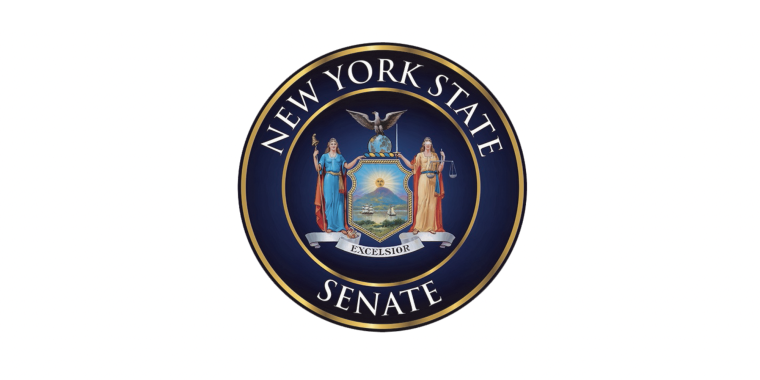
Senator Krueger, Other Legislators Vow to Hold Banks Accountable for Foreclosed Homes
Liz Krueger
August 26, 2010
-
ISSUE:
- Banks
- Foreclosure
- Loans
- Constituents Corner

For Immediate Release | August 26, 2010
Katie Kincaid | kincaid.nysenate@gmail.com | 646-784-0485
(New York, NY) On Wednesday, August 25th 2010, New York State Senator Liz Krueger, joined by State Senator Jeff Klein, Assembly Member Hakeem Jeffries, City Council Member Brad Lander and New York Communities for Change (NYCC), held a press conference to announce legislation that is aimed at holding banks responsible for foreclosed homes in New York, while also pressing banks to avoid the foreclosure process by coming to the negotiation table early enough to modify loans. The proposed legislation emphasizes the importance of banks responsibly maintaining foreclosed homes if they cannot offer a viable mortgage modification to families in need.
“The simple fact is that foreclosures aren’t good for anyone. They’re not good for the owner, they’re not good for the bank and they’re certainly not good for the community," said Senator Liz Krueger (D-Manhattan). "But all of this can be avoided if banks come to the table and work with homeowners to modify existing loans. By simply renegotiating loans, banks can save millions of families from losing their homes and can ensure a much greater chance that they’ll actually receive the monthly mortgage payments they’re due. In the end, loan modification will benefit all involved."
“The foreclosure crisis and its effect on our communities continues and will continue long after the economy rights itself. In New York, we are working to ensure that our City and State do not fall further victim to the plights of foreclosure we’ve seen devastate other parts of the country," said State Senate Deputy Majority Leader Jeffrey D. Klein (D-Bronx/Westchester). "That is why it is imperative that we keep making sure lending institutions are being responsive to all homeowners in crisis and that they work with us to stabilize our communities."
In the midst of the unrelenting foreclosure crisis, New York State and City legislators are taking action to ensure that banks and servicers responsibly maintain foreclosed, vacant homes rather than letting properties deteriorate at the expense of our communities until the housing market recovers.
“Every day in central Brooklyn the foreclosure crisis is suffocating working class and middle income neighborhoods out of existence," said Assembly Member Hakeem Jeffries (D-parts of Kings). "With callous disregard for our communities, banks and other financial institutions refuse to embrace loan modifications and instead continue to focus on their profit margin. The Legislature must hold banks accountable for the financial crisis that results from their reckless behavior. Only then can we begin to rebuild our communities.”
Council Member Brad Lander (D-parts of Kings) said, “Too many banks are refusing to seriously engage in the broad range of programs made available to help homeowners, causing our communities and families to suffer as a result. It is time to ratchet up the pressure and make sure the banks take responsibility.”
All three legislative branches composing State and City government were represented at the press conference which was organized by New York Communities for Change, representing the State Senate were Senators Klein, Velmanette Montgomery, and Daniel Squadron; the New York State Assembly, Assembly Member Jeffries; and the New York City Council, Council Members Lander, Daniel Dromm, Robert Jackson, Diana Reyna, Mathieu Eugene, Letitia James, James Sanders, Jumaane Williams, Helen Foster, Ydanis Rodriguez, Joel Rivera and Annabel Palma.
Jon Kest, Executive Director of New York Communities for Change said, “The banks have the resources to work with homeowners and put an end to the foreclosure crisis, but they are refusing to help. Mortgage modifications are moving at an unacceptable pace and the number of foreclosed and vacant homes continues to destroy our communities. These banks must take responsibility. This action should send a very clear message that New York is no longer going to sit on the sidelines and allow the banks to ignore the foreclosure crisis that they are responsible for creating."
“Our communities that are suffering as a result of the ongoing foreclosure crisis that has been prolonged by the banks deserve relief and they deserve it now," said Council Member Letitia James (WF-parts of Kings). "The banks must be forced to step up and assume responsibility for fixing the problem. They can start by increasing the amount of credit available to our neighborhoods and by increasing the number of permanent loan modifications.”
Below are details pertaining to the legislation that will be proposed on the State and City levels:
New York State Legislation Proposed
• Failure to Maintain: New York State recently passed comprehensive legislation to address the foreclosure crisis. A key element of this legislation, which took effect in April, was attaching a duty to maintain property upon foreclosure of judgment. Yet as we have seen, sometimes the lending institutions do not always react when laws are passed in New York State. Therefore we are proposing that, in one year, if the banks do not maintain foreclosed property in New York, we will seek to institute a fine structure in increments of $100 a day, beginning after 20 days. This proposal is similar to fine structures in place in other States across the country for vacant or foreclosed properties.
• Making Fines for Failure to Maintain Foreclosed Properties into Priority Liens: An amendment to the State Lien Law, General Municipal Law, other municipal laws, and State Finance Law that would ensure that end purchasers, title company and lending institution be responsible for municipal housing violations, the enforcement of local building codes, and the payment of such fines. This would be accomplished by enabling municipalities to convert property maintenance and other violations to priority liens tied to the property. Currently, many violations are either not tied to the property itself or are subordinated to other debt obligations on the property and therefore not sufficient incentives to properly maintain a building. Converting these properties to priority liens would enforce collection and ensure that the violator is clearly aware that they are responsible for maintenance of the foreclosed property.
• Abandoned Building Law, (introduced as S.8100/A.6161-A): Will allow the City government to take title to buildings to ensure they are properly managed after abandonment. Lending institutions may stop Article 19-A proceedings by merely starting a foreclosure action. However, current law does not require the mortgagee or lienor to follow through with the foreclosure action or ensure that someone is appointed and empowered to manage the building. This legislation would require the mortgagee or lienor to proceed with the foreclosure action and have a receiver appointed who must reach a repair agreement with the housing and development administration. Or alternatively, such mortgagee or lienor may formally take possession and enter into such an agreement for repair. This will ensure that the building be effectively managed and repaired.
New York City Legislation Proposed
• Foreclosure Registration (to be reintroduced former Int-889-2008): Would require registration of the initiation of foreclosures with the Department of Housing Preservation and Development (HPD), and transfer of responsibility of fines to the foreclosing lender. This will allow the City to identify bad corporate actors who are allowing their properties to systematically blight neighborhoods.
• Bond Requirement: Require lenders to post a bond for each vacant property to ensure the City is paid quickly for the fees and fines it assesses during the foreclosure and post-foreclosure period.
Share this Article or Press Release
Newsroom
Go to Newsroom


